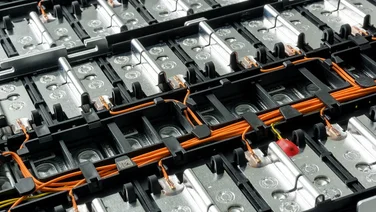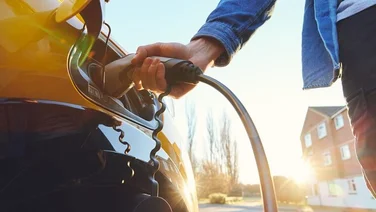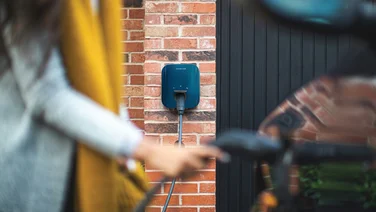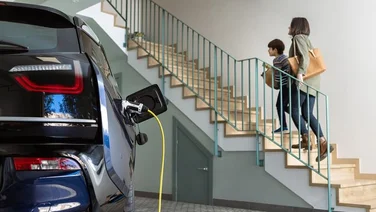We receive a small fee from trusted installers when you request a quote through our site. This helps us keep our content independent, well-researched and up to date – Learn more
- Charging your electric car at home
- Charging your electric car at a petrol station
- Charging your electric car at a supermarket
- Charging your electric car at a car park
- Where can you charge your electric car for free?
- Where is the best place to charge your electric car?
- How to find electric charging points near you
- Summary
- Charging your car at home is cheaper than public chargers
- There are nearly 4,000 free charging points across the UK
- The UK has over 36,000 public charging stations
Investing in a the price of an electric vehicle charger is the cheapest way to charge your car, but it’s not the only way. Several public charging options are out there.
If you want to know what all the EV charging options are, you’ve come to the right place. In this guide, we’ve covered where you can charge your electric car, where you can charge it for free, what the best place to charge your car is, and how to find charging points near you.
If you’re ready to get your own EV charger for your home, you can always fill in our easy-to-use comparison form. Simply enter a few details about your property and we’ll put you in touch with our trusted installers. They’ll then get back to you with bespoke quotes for you to compare.
Get free EV charging point quotes
Answer a few quick questions, and our trusted installers will send you bespoke EV charging point quotes – for free.

Charging your electric car at home
Charging your electric car at home is the easiest and most convenient charging method because you can simply plug your car in and go about your day.
It’s also the cheapest way to charge your car, costing an average of £610 per year. To compare, charging at a public station will cost you roughly £1,077 per year.
Despite it being more expensive to charge your car at a petrol station, it’s still cheaper than filling a car up with petrol — £1,274 a year.
Your main option for charging at home is using a driveway charger, which is as simple as connecting your car to a charging station at your home and leaving it on your drive. The cost of installing one is typically between £800 and £1,200.
If you don’t have a driveway but have street parking, you can still connect your car to your charging station, but you’ll need to make sure the wire is secured to the pavement. A loose wire will be potentially dangerous for people walking past.
You could be liable and potentially face a hefty fine from a personal injury lawyer if someone hurt themselves tripping over your cable.
Some streets have dedicated charging points available, but these will cost more to use than having your own EV charger. Read our guide on charging your electric car without a driveway for more information.
There’s also the option of borrowing someone else’s charger, with a few platforms making this a pretty simple process. Co Charger is an app for electric car owners can use to book and hire a neighbour’s charger, paying them a small fee to do so.
It’s a handy way to help more people make the move to electric, without having to install their own EV charger.
The main disadvantage of charging your electric car at home is how long it’ll take, compared to using a public charging station. This is because the majority of homes don’t have access to a three-phase power supply, which is reserved for much larger power needs.
A standard 60 kW battery will take just under eight hours to charge with a 7 kW home EV charger. So even though charging at home is cheaper than public charging points, you’ll usually have to leave your car plugged in overnight.

Charging your electric car at a petrol station
You can charge your electric car at a petrol station in much the same way you’d refill a car with either petrol or diesel.
The main difference is how long it takes, with the average time to fill a fuel tank with petrol being two minutes, compared to 30 minutes to an hour to charge an electric car with a rapid charger.
It’s also more expensive than charging at home — costing £1,077 per year, on average — but you get the convenience of quicker charging times. That’s because most EV chargers at petrol stations fall into the rapid or ultra-rapid categories.
Ultra-rapid chargers, also known as DC or Level 3 chargers, can have power outputs of up to 350 kW, which means they can charge in mere minutes. But they’re few and far between at the moment, and most cars don’t have batteries that can accept such a high power level.
Only around 200 models in the UK currently have this capability, including the fastest charging electric car, the Hyundai IONIQ 6 Long Range 2WD.
Charging your electric car at a supermarket
Some supermarkets in the UK offer the convenience of charging your car while you’re shopping, which is much better than waiting around at a petrol station.
You can even charge your car for free at a handful of supermarkets, although this number is starting to shrink — you can thank the rising price of electricity for that.
Currently, only Sainsbury’s, Lidl, and Aldi provide free charging, and Tesco offers charging at a lower rate than you’d pay at either a petrol station or other public charging point. Tesco did offer free charging for a while, but ended this November 2022.
Inconvenience like this might help explain why just 55% of Brits would want an electric car, even if it were free, according to our 2023 National Home Energy Survey revealed.
Charging your electric car at a car park
Being able to charge your car when you’re parked, whilst you continue doing other stuff, makes sense, and thankfully, they’re the most common type of free charging available.
You can find 1,255 free charging stations in car parks across the country. Based in London? Our guide on free EV parking in London is a handy resource for electric car owners in the capital.
If you’re lucky, you might even find a car park with solar panels.
Where can you charge your electric car for free?
There are currently 3,931 free electric car charging stations in the UK, out of the roughly 36,000 charging stations registered on Zap Map.
Scotland leads the charge in free stations, offering over 1,300 locations where you can give your car’s battery a top-up without spending a penny.
Greater London has the third-highest number of free charging stations with 353, just behind the South East’s 566, but crucially these only account for 3% of Greater London’s available charging points.
It’s estimated that 82.6% of these free charging stations qualify as ‘fast’, meaning they have power outputs of between 7 kW and 22 kW. You’ll be able to charge most small electric cars in around three hours with these chargers.
Roughly 7.2% of free charging stations are ‘rapid’, which will allow them to charge a typical electric car in under an hour. Some are powerful enough to charge a vehicle in 30 minutes or less, but even the pay-to-use stations aren’t widely available, let alone the free ones.
The most common locations for free charging are in car parks, dealership forecourts, and hotels.
Where is the best place to charge your electric car?
The best place to charge your car will usually be in the comfort of your own home, but it depends on how fast you need to charge your car.
Charging at home will be cheaper, especially if you charge your car using solar panels as you won’t be paying the current electricity price of 28.62p per kWh.
You’ll still need to wait around eight hours to charge most electric cars however, which isn’t ideal if you’re strapped for time.
It’s better to use a rapid or ultra-rapid public charger in this case, because you can charge your car in an hour or less — with the fastest chargers taking less than 30 minutes.
How to find electric charging points near you
The best way to find electric charging points near you is to use Zap Map, a handy resource that shows the exact location of charging points on a map.
It also has live updates on whether a charger is available, so you won’t have to worry about arriving to find it’s already occupied.
You can see how powerful a charger is too, which is helpful if you need a quicker charge to be on your way faster.
Summary
There is already more than double the number of chargers than there are petrol stations in the UK — and this is only set to increase. As the UK’s charging point infrastructure grows, it’ll become easier than ever to make the switch to electric.
Ready to get your own EV charger? You can fill in our easy-to-use comparison form and we’ll connect you to our expert installers. They’ll use the details you provided to give you free quotes for EV charging point installation.








